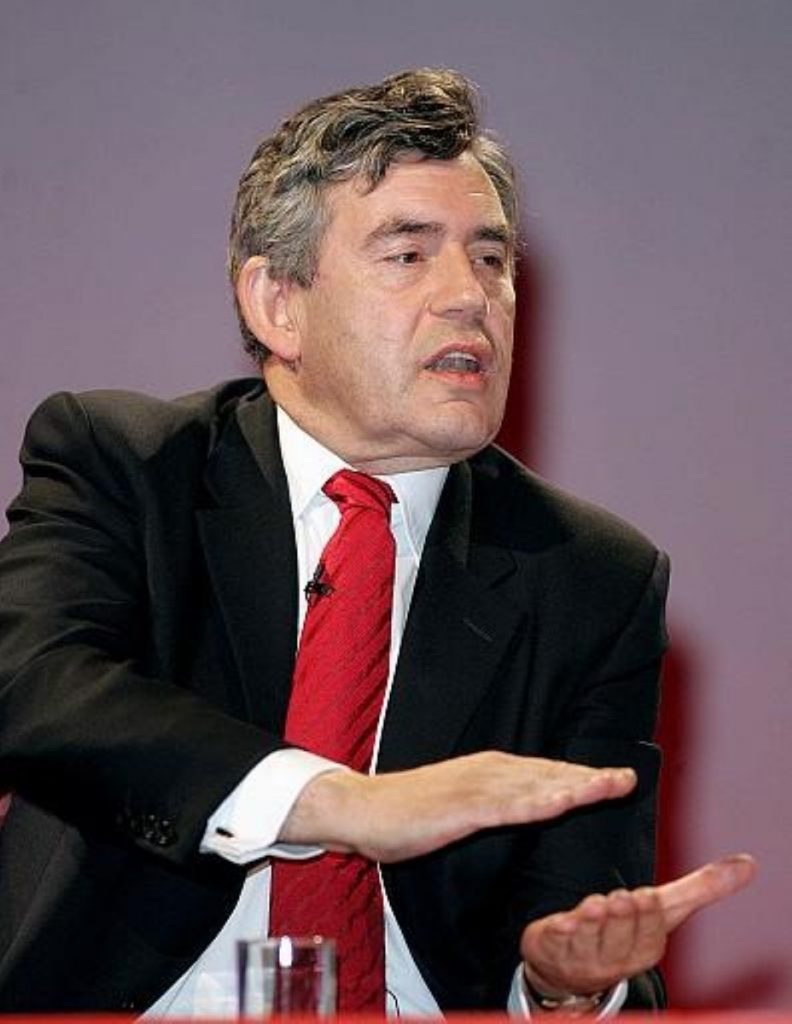Blair backs Brown amid rising pensions ‘spin’
Downing Street has backed the chancellor Gordon Brown amid the escalating pensions row.
Responding to claims the government has resorted to ‘spin’ to diffuse the crisis, Downing Street has urged people to focus on the substance behind the debate.
Mr Brown’s 1997 Budget increased investment in the UK by 50 per cent over ten years, the prime minister’s official spokesman said. With persistent economic health, Tony Blair continues to back the chancellor’s decision, as he had when Mr Brown originally decided to change the pension tax rules.
The chancellor today made his first public statement on the growing furore and insisted he had made the “right decision”.


While saying he took full responsibility for the tax credit, Mr Brown insisted he had made an informed decision based on expert advice. He had been motivated by the long-term strength of the British economy, he added.
“It was a tough decision but the prime minister fully backed the chancellor’s decision at the time and he still does because he believes it is in the interests of the long-term health of the economy,” Downing Street said previously.
Mr Blair’s backing came after the Confederation of British Industry (CBI) denied it had lobbied for changes to the occupational pensions system and accused the Treasury of “a convenient bit of spin”.
Richard Lambert, director general of the CBI, said there was no record of the organisation lobbying for tax relief, “and there is no record because we objected strenuously to the policy.”
Mr Brown has been under increasing pressure since the Times obtained documents seeming to show the chancellor ignored advice from civil servants that his planned £5 billion reduction in tax relief would cost the pension fund up to £75 billion.
Work and pensions minister John Hutton defended the chancellor and said there had been a consensus at the time that these were the right changes to make. “British business was urging these changes to be made and the clear view from the Treasury, in these papers, was that these would be in the long-term best interests of British pensioners,” he told ITV’s Sunday Edition.
However, the CBI has angrily rejected claims it lobbied for the changes in 1997. Mr Brown dropped tax relief on share dividends to raise £5 billion a year for the Treasury. The move was also blamed for the collapse of some final salary pension schemes, although ministers say the stock market crash, end of the dotcom boom and poor pension saving are to blame.
The Conservatives are calling for Mr Brown to face a full Commons debate on the matter when MPs return from their Easter recess. “It is time Gordon Brown faced the music for the damage he’s done to British pensions,” said shadow chancellor George Osborne.
And the Liberal Democrats called on the chancellor to acknowledge he had made a “serious mistake” and apologise to UK savers.
“He got it wrong and he should apologise to all those pensioners who are now out of pocket,” said economic spokesman Vincent Cable.
The escalating scandal comes just weeks before Mr Brown is expected to formally launch his bid for the Labour leadership. It has raised speculation among some that Mr Brown could now face a rival for Number Ten, with doubt seemingly cast on his record of economic competence.












